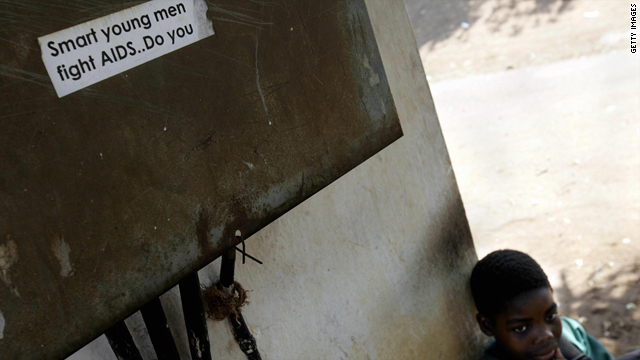Detained Gay Couple to Face Trial in Malawi
By Moni Basu, CNN
(CNN) -- Two men face up to 14 years in jail in a case that human rights activists say is a test case for gay rights, as well as one that could undermine efforts to curtail Malawi's devastating HIV infection rates.
Steven Monjeza and Tiwonge Chimbalanga were arrested in December at their home in Blantyre, Malawi, for professing love and marriage in the traditional way. Police discovered the couple when local newspapers reported on their engagement ceremony, known as a chinkhoswe.
The two men stand accused of "unnatural offenses" and "indecent practices between males" under sections 153 and 156 of Malawi's criminal code. This week, a judge ruled that Monjeza, 26, and Chimbalanga, 20, must face a full trial scheduled to begin April 6.
"This ruling is the most recent in a line of deeply troubling decisions and actions by the Malawian authorities in this case," said a statement from Chivuli Ukwimi of the International Gay and Lesbian Human Rights Commission's office in Cape Town, South Africa.
After their arrest, Monjeza and Chimbalanga were denied bail. In early January, they were subjected to medical examinations intended to find evidence of sodomy, according to Human Rights Watch. They also underwent psychiatric evaluations.
All the examinations were conducted without the consent of the men, said Human Rights Watch.
The exams violated the rights of the two men protected under Malawi's constitution, regardless of gender or sexual orientation, said Monica Mbaru, Africa program coordinator for The International Gay and Lesbian Human Rights Commission (IGLHRC).
Their lawyers told Human Rights Watch that Monjeza and Chimbalanga are being verbally abused and possibly beaten, and that they are not receiving adequate food and other necessities.
Homosexuality is illegal in Malawi -- as it is in most African nations -- and government officials have said they are simply upholding the law. But one of the lawyers for the two men, Feliz Tandwe, said that Section 20 of Malawi's constitution -- adopted in 1994 -- provides equality for all citizens and prohibits discrimination.
Tandwe said that any law that does not conform with the constitution is invalid. "I'm very hopeful of the outcome," he said.
The arrests have sparked international outcry from global rights organizations.
Earlier this year, Human Rights Watch sent a letter to Malawi's government, accusing it of threatening citizens' fundamental rights.
"Prosecuting two adults just because they affirm their love is a terrible injustice," said Dipika Nath, researcher in the lesbian, gay, bisexual, and transgender rights program at Human Rights Watch. "To subject individuals to spurious medical examinations against their will shows grave disregard for their fundamental human rights, as well as for the public welfare."
Mbaru said the case has far reaching consequences in a nation -- like so many others in Africa -- struggling to overcome HIV and AIDS while enforcing harsh punishment for at-risk gay men engaging in sodomy.
The AIDS epidemic is responsible for eight deaths every hour in Malawi, according to Avert, a U.K.-based international HIV and AIDS charity. One million of Malawi's nearly 14 million people were living with HIV at the end of 2007.
Avert says most HIV infections in Malawi occur through heterosexual sex. Because gay sex is a crime, there is no available information about the number of infections transmitted through sex between men, though Avert says indications are that the prevalence may be much higher than previously thought.
After years of struggling with HIV and AIDS, Malawi's government has started to acknowledge the importance of recognizing the rights of gays in addressing the epidemic.
Last year, Mary Shawa, secretary for nutrition, HIV and AIDS in the president's office, advocated for a human rights approach to the delivery of services for people living with HIV and AIDS. She said that the fight against HIV could not be won without a change in attitude toward risk groups.
Mbaru, whose organization has visited Monjeza and Chimbalanga in prison five times, said their case is sure to undermine an effective response to the spread of HIV and AIDS.
Recently, an Early Day motion was submitted for debate in the British House of Commons, calling on the president of Malawi to decriminalize homosexuality and release Monjeza and Chimbalanga. Such motions are usually filed to draw attention to a topic and are rarely discussed, but a similar request was made many years ago to release South African leader Nelson Mandela.
Meanwhile, Monjeza and Chimbalanga appeared in court this week. They were together, bound to each other -- by handcuffs.


No comments:
Post a Comment